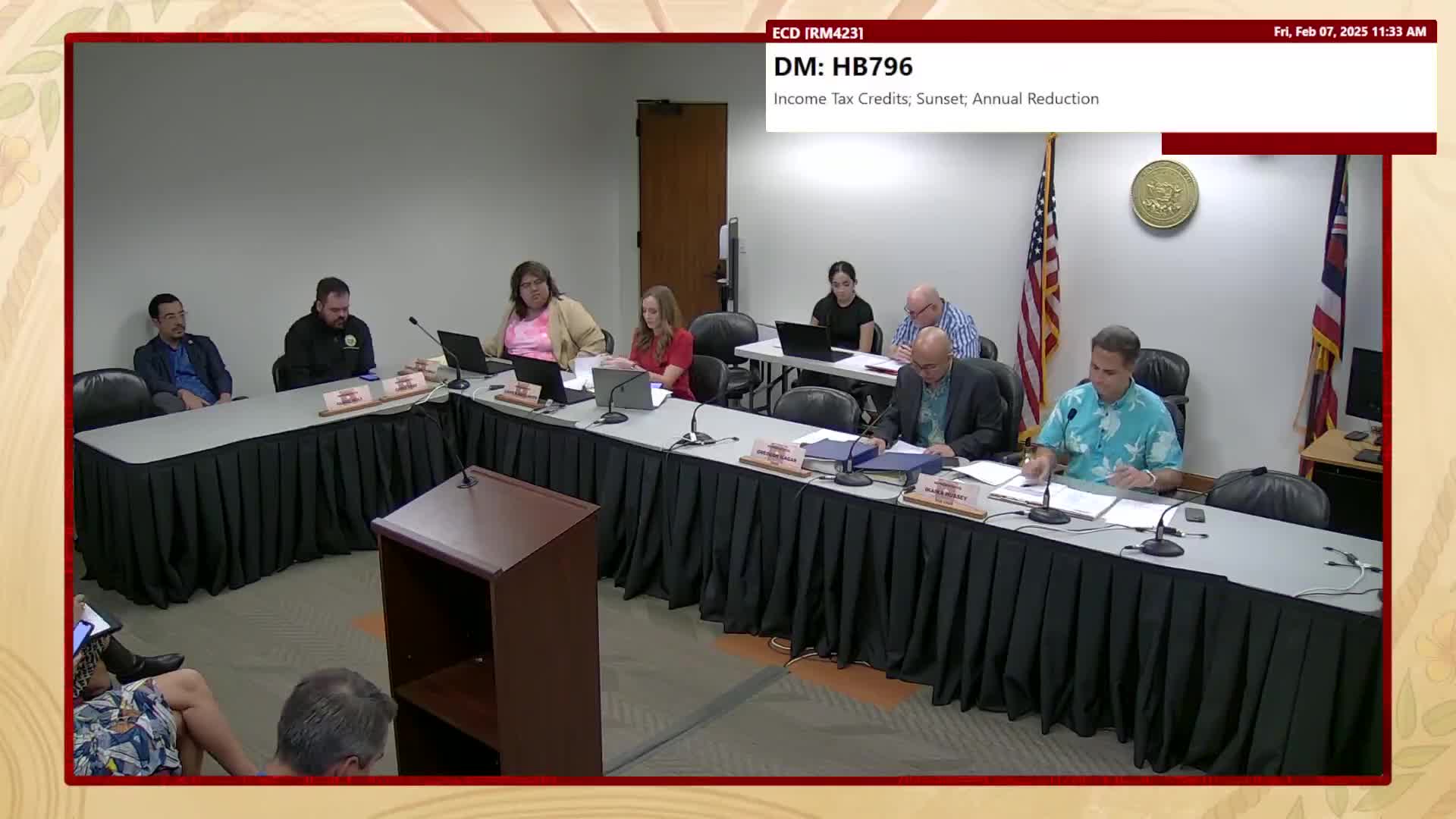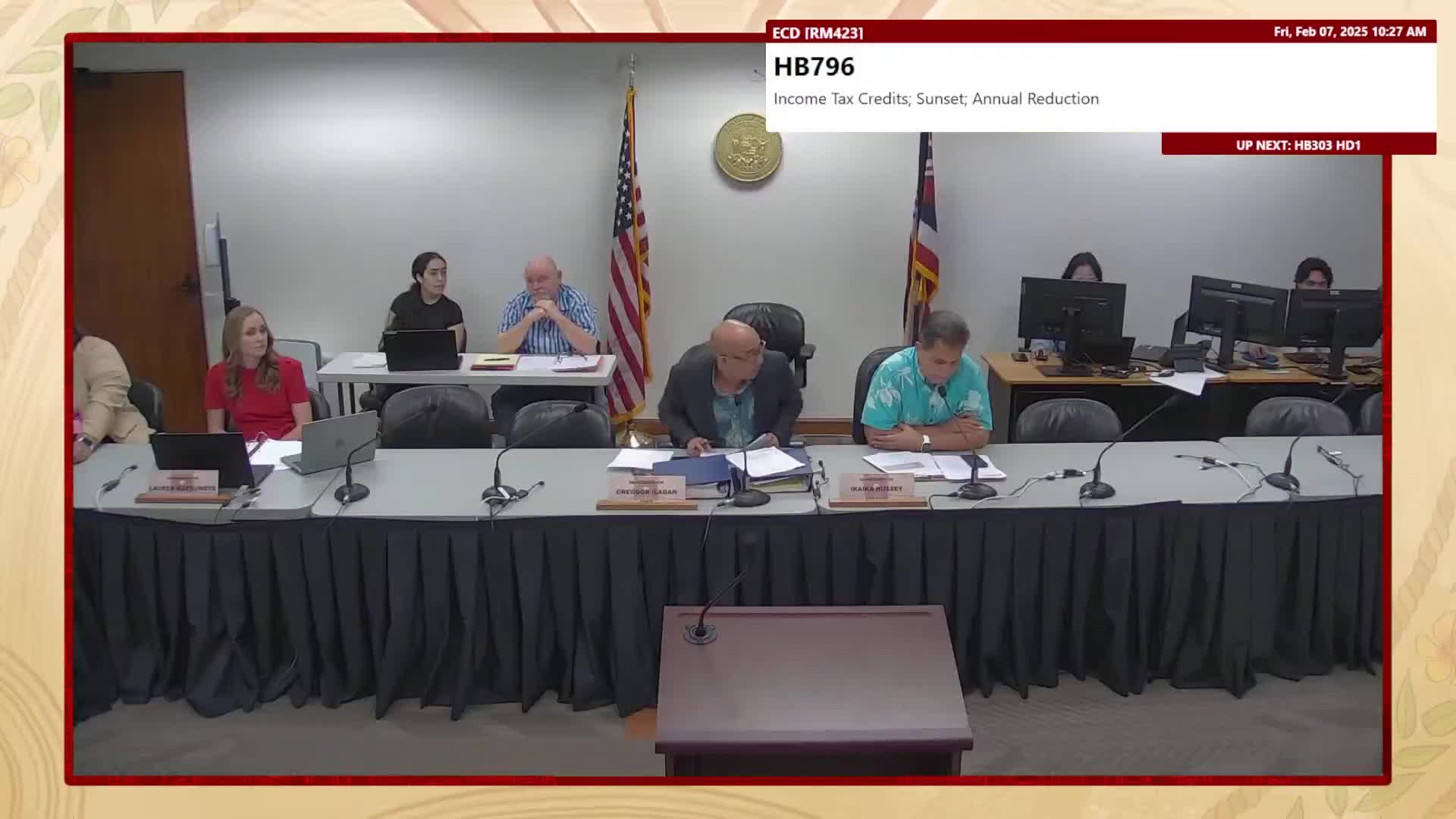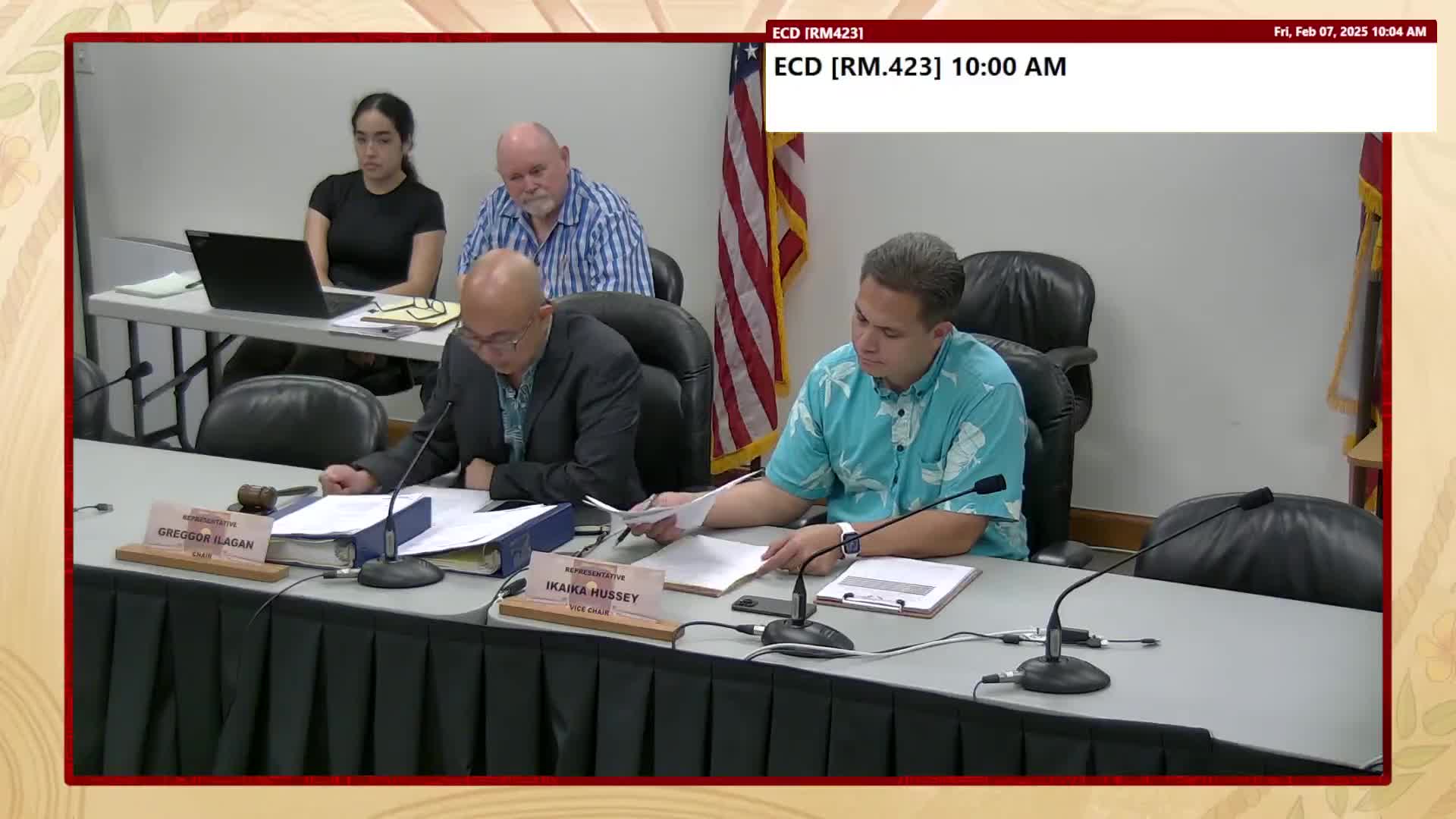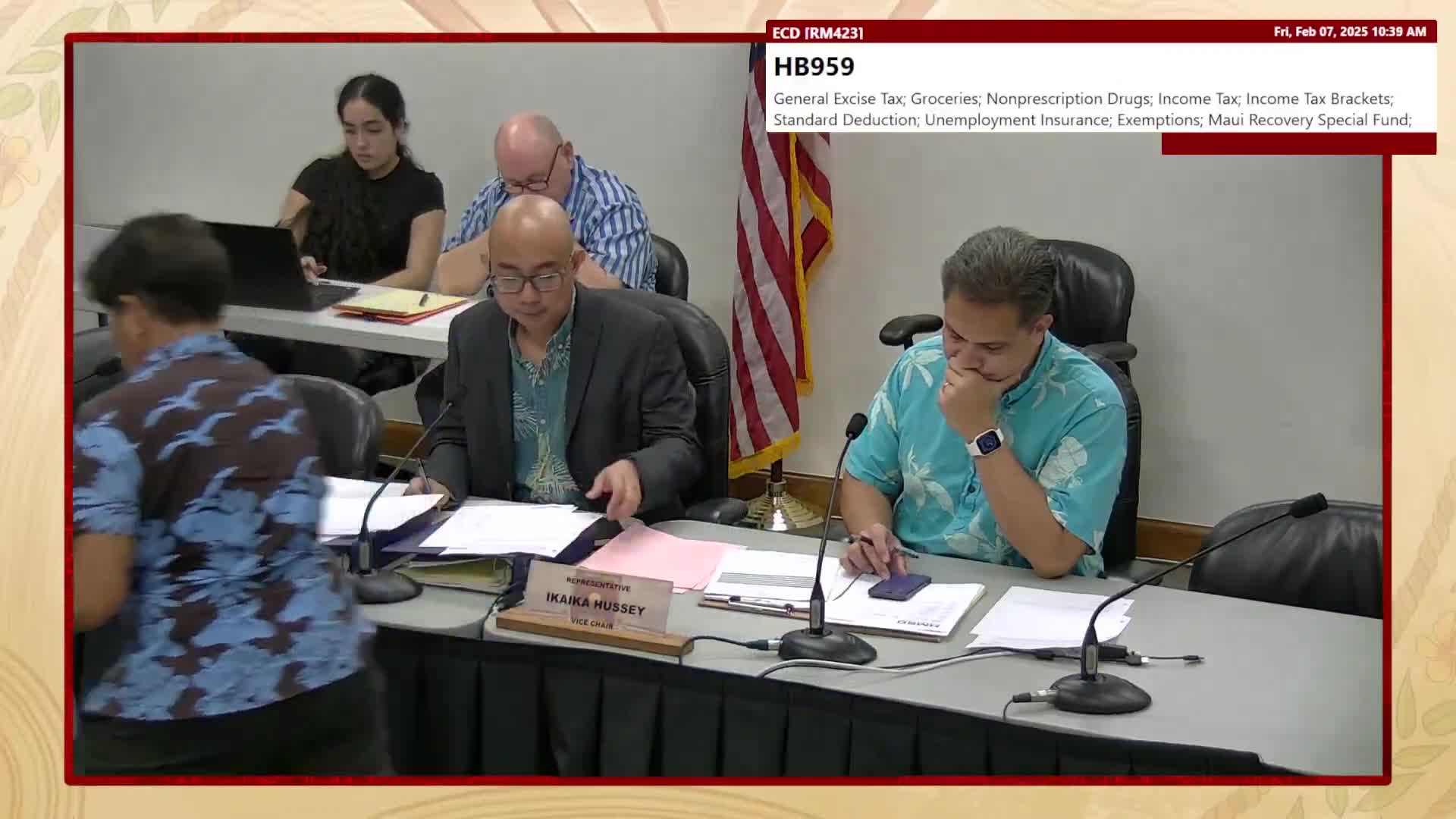Article not found
This article is no longer available. But don't worry—we've gathered other articles that discuss the same topic.

Votes at a glance: actions taken Feb. 7 by House Committee on Economic Development

Committee advances bill expanding health-education tax credits with DOTAX technical changes

Committee approves amended DBEDT permit streamlining and chamber grant measures

